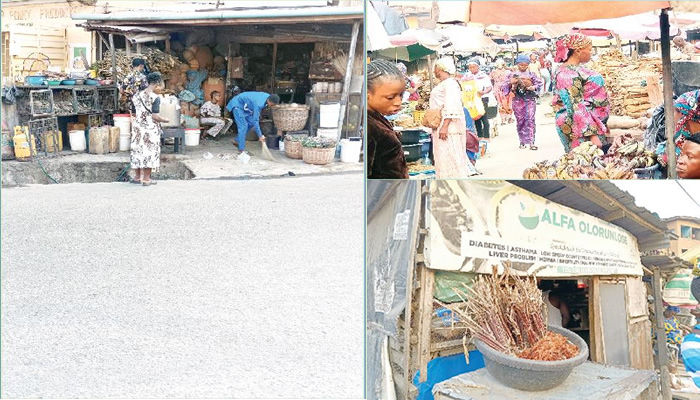Fatigued from navigating numerous pharmacies, Mrs. Precious Mark, a resident of Port Harcourt, Rivers State, found herself grappling with soaring prices for the foreign anti-malaria tablets her family had relied on for years. The medication’s cost had doubled from N9,000 to N18,000, compelling her to consider a cheaper herbal mixture her husband had previously purchased.
Expressing her frustration on Facebook, Mark shared her experience, revealing her initial skepticism about the herbal concoction. However, after reluctantly trying it, she was surprised to see her typhoid disappear within three days. Her endorsement led her to advocate for the “inexpensive yet highly effective” herbal medicine, priced at just N1,500, capable of addressing typhoid, malaria, and infections.
Mark’s story is emblematic of a broader trend, as other Nigerians, faced with exorbitant drug prices, turn to herbal alternatives and, in some cases, become advocates for these “all-in-one cure medications.”
The situation has become increasingly dire, with orthodox drug prices skyrocketing by over 900% since the second quarter of the previous year. This surge is attributed to factors such as the fuel subsidy removal, the Central Bank of Nigeria’s decision to allow the free float of the naira, leading to its depreciation, and the exit of the British pharmaceutical giant GlaxoSmithKline in August 2023.
Rising prices and a depreciating naira have strained patients managing chronic conditions, making essential medications unaffordable. Recent data analysis from the International Trade Centre indicates that pharmaceutical product import prices may exceed N900 billion due to naira depreciation. As the naira continues to fall, drug prices are expected to rise further in the coming weeks and months.
Nigeria primarily imports pharmaceutical products from countries such as India, China, and Belgium. Producers within the country lament the impact of rising production costs, naira depreciation, and difficulties in accessing foreign exchange at official market rates on drug prices.
In response to the escalating costs, some Nigerians are turning to herbal medications, leading to a 30% increase in the adoption of cheaper alternatives. Internal medicine specialists report a rise in patients with non-communicable diseases arriving in emergency units with life-threatening conditions. Factors such as disinformation, lack of faith in orthodox medicines, and financial constraints are influencing Nigerians to seek herbal remedies.
END.

